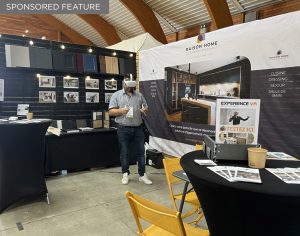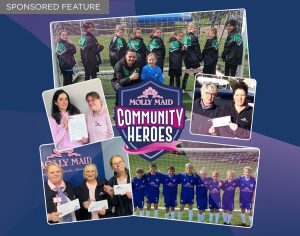Despite the limitations placed on the education industry throughout the last two years, we are now celebrating the beginning of an exciting period for the future of learning, be it in-school or in a one-to-one tutoring setting. The disruptions and limitations that forced us to rethink how the modern student learns effectively have ultimately inspired us to more effectively utilise what has been at our disposal for years – technology. The question “does technology have a complementary effect on the traditional learning experience?” is now unavoidable, as the new and creative approach we apply to our use of technology in and out of the classroom has expanded the learning experience significantly.
By mid-April 2020 more than 90% of the world’s students had been locked out of classrooms1. This meant the demand for high-quality education technology grew significantly in a very short space of time. Whether in language apps, coding, virtual tutoring or video conferencing tools, there has been a significant surge in ‘edtech’ usage since COVID-19. This has ultimately encouraged such brands to revitalise their technological and digital footprint, which continues to work in tandem with the ever-developing educational landscape that students are absorbing as a part of their unique experiences.
When used appropriately and balanced effectively with other methods of learning, technology can be a very positive approach for children who enjoy screen time and absorbing diverse multi-media. The generation of children currently going through mainstream education were most likely introduced to technological devices as toddlers. As such, these students may associate laptops, tablets and other similar devices with fun and innovation. Consequently, technology in learning can not only help to harness some students’ attention and excitement more effectively but invigorates traditional learning experiences, turning what they might have considered a mundane class into an enriching and motivating adventure – improving educational outcomes for those who respond positively to this way of learning.
The collective expertise of Tutor Doctor’s network allows us to incorporate online applications and resources as a key element of our individualised approach to students’ education. From Scratch, which helps students learn through the endless possibilities of coding, to BBC bitesize which offers visual and engaging supplementary learning, technology is just one way that we ensure learning is an enjoyable, enriching, and personalised journey, not a standardised one.
Technology has established itself as another great way students can take ownership of their own learning experience. When used appropriately and monitored, technology can supplement individual learning to no end, and in a tutoring environment, can give students a powerful tool for maximising the outcomes of studying. What has benefitted the Tutor Doctor franchise most from this technological shift is the fact that our service model was already built on the individual needs of the student, rather than providing a generalised, one-size-fits-all programme. Many children all over the world have become autonomous in expressing their personalities through such mediums which, ultimately, has allowed our tutors to discover more about those students who show a passion for technology.
Educators have known for decades that the traditional, “rote,” learning approach just isn’t effective. The incorporation of technology into learning, and the creativity that it inspires, has allowed teachers and tutors to deepen student engagement and elevate education to become active (rather than passive) and student centred. This creates intrinsic motivation for learning, which improves outcomes, by making students drivers of their own successes and increases the accessibility of education by removing physical limitations and by allowing students absorb and demonstrate knowledge in ways that appeal to them.
It is never too early for young children to begin building skills and knowledge that they can carry through their educational and professional careers. Exposure to technology in early education can be a great way to begin building a foundation for success, especially for those who demonstrate an affinity for virtual spaces and digital tools. The use of technology supports the development of skills such as analysis, critical thinking and adaptability, which are all important to possess in the modern world. Tutor Doctor not only focuses on the academic learning journey, but also on the development of equally important soft skills through modern mediums that are imperative to success in the 21st century.
1The Economist, 2021, Covid-19: how tech could transform education

































